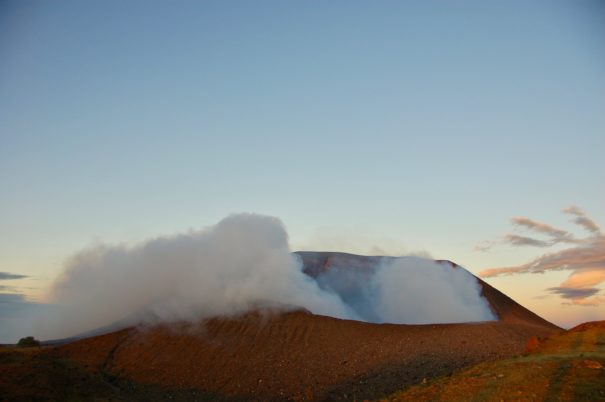How to Squeeze the Most Happiness from Your Money

Last June I ordered a copy of Lonely Planet Nicaragua. I never buy a travel guide and not go to that country.
Ghana, France, Argentina, Italy, wherever. If I buy the guide I know I’m going, and that’s when I start getting excited.
And if you’re wondering, “Why Nicaragua?” there’s no good answer.
Someone might tell me about a country or city that piques my interest. Maybe I read a random article.
Either way I’ll jot it down in my notebook. Here, I’ll tell you what’s on my travel list right now.
Let’s see. There’s Greece, Barbados, Quebec City, Spain, and Southeast Asia (Thailand, Cambodia, Vietnam, and Bali).
How I pick where to go is pretty random. Like, I went to Tanzania once because I picked it out of a hat. Literally.
Anyways, it’s June and I have this Nicaragua travel guide. So I’m leafing through it, and start thinking about when to go.
After Christmas I’m over the Wisconsin winter, so January seems like a good time. I pick a few weeks and book flights using miles.
Think about this. It’s now July, and I’m sitting there on my couch with a plane ticket for January.
Why am I telling you this? It’s an example of how you can squeeze the most happiness out of your money.
Like I was reading the Nicaragua forums on TripAdvisor and some people have no clue about this:

To me, travel is all about the months of anticipation, because the months of anticipation is what makes you happy.
Learning about the country, deciding what sights to see, picking places to stay, imagining what it’s going to be like camping on the rim of a volcano.
And the happiness research backs this up.
I think happiness research is getting tiresome these days, but what these studies are proving over and over again is that experiences make you happier than things because they make you more mindful and less materialistic.
But the problem isn’t whether experiences make you happier than things or not. We know that they do.
The problem is that you need self-control in order to implement that advice, and who has self-control?
I mean, there’s people who have billions of dollars yet can’t keep their weight down because they don’t have self-control.
Here’s the thing. Self-control is like a muscle. If you use it, it gets stronger, and if you don’t, it gets weaker.
If you don’t go to Amazon when you’re feeling bored — exercising your self-control muscle — the next time it becomes a little bit easier, and so on.
But if you find yourself typing in Amazon a few days in a row you’re probably headed for a long losing streak.
So, we have this infinite amount of data that says we should choose experiences over things to make us happy, but we need self-control to actually do that.
And having self-control will always be the hardest part.
Anyways, after I spent six months looking forward to Nicaragua it was finally time to board the plane.
It turned out to be everything I dreamed it would: noisy markets, blazing heat, towering volcanoes, bumpy roads, crumbling colonial cities, forests on steroids.
And you think that when it’s over it’s over. You step off the plane, walk past the Cinnabon you walked past three weeks ago, and go back to work.
That’s mostly true, but now you’re looking through photos, sharing stories with friends and family, and re-living the experience.
You get months of residual happiness.
This eventually tapers off, but here’s how I think about it. I spent $1,000 but squeezed a whole year of happiness from this trip.
So now you have a choice.
You can go buy a new car for $40,000. Maybe even a second home on the lake. How much does that cost, $250,000?
You probably see yourself pulling up in your fancy car while sitting on your dock drinking a margarita.
But you never think ahead.
How the car gets dented and scratched, that the dock needs to be fixed, and someone needs to clean out the blender from last time.
New things will make you happy until they don’t, but the happiness from an experience can last you a lifetime.
